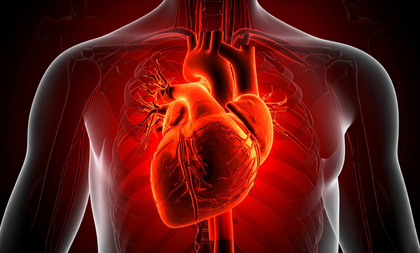Genes, binge drinking, stress behind surging heart-related deaths in young adults
By IANS | Updated: August 16, 2025 16:10 IST2025-08-16T16:00:34+5:302025-08-16T16:10:02+5:30
New Delhi, Aug 16 A poor lifestyle with lack of sleep, binge drinking, and high stress, coupled with ...

Genes, binge drinking, stress behind surging heart-related deaths in young adults
New Delhi, Aug 16 A poor lifestyle with lack of sleep, binge drinking, and high stress, coupled with genes, is playing a significant role in the rising heart-related deaths in India, said experts on Saturday.
Recently, an increasing number of heart-related deaths have been reported in the country. These have also been among people who are seemingly fit and are maintaining a healthy lifestyle.
“Not all can be called heart attacks. About 20 per cent of the heart-related deaths in India are because of certain genes,” said Dr Rajiv Bhal, Director General of the Indian Council of Medical Research (ICMR).
He also blamed “binge drinking (alcohol) among the younger generation, silent hypertension, increasing stress, and a lack of proper sleep, as well as childhood obesity” for the surge in heart-related deaths.
Further, he stressed that heavy exercise in gyms, especially by people with faulty genes, can contribute to heart-related deaths.
Bhal also suggested six things for good health: “healthy physical activity, no smoking, better sleep, proper diet, reducing stress, and doing some kind of meditation”.
Dr. J.P.S. Sawhney, Chairperson of Cardiology at a leading hospital in the national capital, stated the two genetic causes that are highly prevalent and linked to cardiovascular disease in India -- familial hypercholesterolemia and elevated lipoprotein(a).
The global prevalence of familial hypercholesterolemia is approximately 1 in 250. In India, it is responsible for heart attacks below the age of 40 in 15 per cent of cases.
On the other hand, elevated lipoprotein(a) is present in 25 per cent of the general population in India.
“We have observed that elevated lipoprotein(a) levels -- above 50 mg/dL -- are common in young heart attack patients and are directly linked to the severity of coronary artery disease,” the noted cardiologist told IANS.
Sawhney explained that the diagnosis of familial hypercholesterolemia is ideally done by genetic testing.
“However, since this is not easily available in most parts of the country, we use the Dutch Lipid Clinical Network (DLCN) Criteria for diagnosis. The importance of diagnosing familial hypercholesterolemia lies in not only identifying the index patient but also performing cascade screening of siblings and their children by checking fasting lipid profiles,” he said.
If the cholesterol level is high, we consider them carriers and start treatment early in life -- as early as two years of age -- to lower cholesterol levels. Otherwise, these patients are at high risk of developing premature heart attacks.
In the case of elevated lipoprotein(a), there is currently no specific treatment for it.
“We are awaiting the results of ongoing trials on a special group of drugs, expected in 2026, which may provide targeted therapy. At present, for those with high lipoprotein(a) -- more than 50 mg/dL -- we recommend aggressive control of other risk factors such as diabetes, hypertension, and high cholesterol,” the expert said.
Disclaimer: This post has been auto-published from an agency feed without any modifications to the text and has not been reviewed by an editor
Open in app